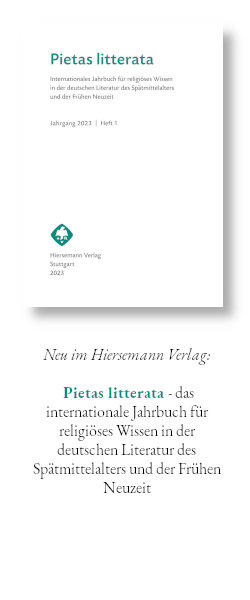Warum Dante an der Kurie? – Alessandro Astesis ‹Commedia›-Vorlesung für Papst Pius II. (1458 – 64)
Schlagworte:
Alessandro Astesi, Alexander Hastensius, ‹Commedia›, commentary, Dante Alighieri, ‹lectura Dantis›, Pius II, pope (1458 – 64)Abstract
Thomas Haye: Why Dante at the Curia? – Alessandro Astesi’s Lecture on the ‹Commedia› at the Court of Pope Pius II (1458 – 64).
The history of Dante’s ‹Commedia› is the history of its interpretation. Among the roughly two dozen commentators who interpreted the text up to middle of the15th century, Alessandro di Lazzaro Astesi (Alexander Pistoriensis Hastensius) is a special case in that, having written a commentary on the ‹Commedia›, he also gave an oral presentation of Dante’s work – a lectura Dantis – to Pope Pius II (1458 – 64)at the papal court. In stating the reasons for choosing this topic, Astesi refers to the exceptionally sacred character of the ‹Commedia› with its long process of becoming a part of the literary canon – in the course of which it came ever closer to be given equal status with the bible and the patristic texts – culminating in Astesi’s conception that being presented with its recitation and interpretation should not only be acceptable to a pope, but highly desirable. However, Astesi’s performance at the papal court was to remain a singular event. Neither during the Renaissance nor in the early modern period a sustained practice of the lectura Dantis was established in Rome. While the Florentine poet might be part of the literary canon at schools and universities, he was denied this kind of institutionalised ennoblement by the Curia.


